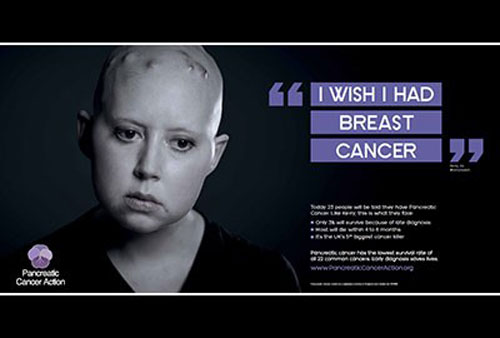Award ceremonies – have they had their day?
Gender-neutral categories; non-competitive sports days; updating of voting processes – the last few years has seen a number of changes being introduced to award ceremonies of all natures and types. Most of these changes have been under the banner of ‘being more inclusive’ or ‘embracing diversity’, with most raising more than a few eyebrows.
But it does prompt a bigger question. We all know award ceremonies aren’t perfect, hence the raft of changes we are seeing, but could it mean awards have in fact had their day? Are they anything more than industry professionals patting themselves on the back and celebrating their own achievements over a few glasses of over-priced wine?
We’ve spoken before about how entering awards isn’t actually about the winning, but are we kidding ourselves? Would it be better to just accept them for the nonsense they are and just dispense with them once and for all?
We take a look at some of the biggest challenges facing awards as we know them.
The box ticking debacle
When the Brit Awards decided to do away with gendered categories in 2021 to demonstrate their commitment to inclusivity it was hailed as a ‘landmark’ moment. Fast forward to 2023, and they were faced with a backlash as no women (or a gender-neutral person) had been nominated in the gender-neutral Artist of the Year category. Predictably, this was followed with mumblings about introducing a mandatory rule ensuring in future 50% of the nominees should be women, although you can’t help wondering whether just bringing back gendered categories would be a better bet.
And this is exactly why trying to tick boxes never works. Yes, of course, all awards whether it’s for acting, music or marketing should be as inclusive and diverse as possible, but you also have to accept the fact you can never please everyone all of the time. Maybe, and this is a bit controversial, all the female and gender-neutral artists that year just weren’t good enough. Maybe the reason Andrea Riseborough was put forward for a Best Actress Award at this year’s Oscars was because her performance was better than those of Viola Davis and Danielle Deadwyler? The fact they had both been predicted as contenders is immaterial, but the fact they are both black once again raised questions around racism in Hollywood.
So, what’s the answer? Well, it’s definitely not stating that a certain percentage of nominees have to be black, women or anything else for that matter. This is nothing more than a form of positive discrimination, otherwise known as box ticking. Yes, the organisers might be able to pat themselves on the back for being so inclusive, but does it make the nominees and winners happy? Not so much. Beth Mead has just slammed the Ballon d’or Awards for doing just that and as Stormzy put it ‘Diversity isn’t a ‘buzzword’ or ‘box to tick’.
That type of approach is almost as bad as ensuring nobody goes away empty handed. Do awards really mean anything if you know you are guaranteed to win something? Doesn’t it tarnish your award somewhat if it’s clear someone else was actually the worthy winner? It might be a cheeky tactic to encourage new people to enter (who might be a bit naïve about how these things work) but it also risks alienating a whole raft of other entrants who actually want to win based on the merit of their work, not just because they turned up.
If you’re going to do either of the above, then maybe it would be better to do away with awards altogether, and just give everyone a gong instead and have a bit of a knees-up to celebrate how wonderful everyone is.
The curse of subjectivity
But putting the issue of box ticking aside, can awards ever actually be fair anyway, given the issue of subjectivity? What you think is great, in terms of a film, track or marketing campaign, may be very different from the person next to you. How many times have you watched the film which won the Best Picture at the Oscars and been disappointed or wondered how that marketing campaign won a Drum Award?
Yes, the judges are given very strict criteria which they have to follow when deciding on the winners, but they are only human, so that’s not going to stop them favouring a particular entry because, for example, they prefer cats to dogs.
Of course, they may not even realise they are being biased or being swayed by what their peers are voting for, and many awards will put processes in place to mitigate these issues. These could include anonymising entries, private judging, recruiting impartial judges and recusing judges if there is a conflict of interest.
But the issue of subjectivity is one of the reasons so-called controversial campaigns go on to win awards. This ad for Pancreatic Cancer Action won an IPA Effectiveness Award for impactful marketing, despite backlash from other charities who accused the campaign of ‘belittling’ other cancers.

And this one from Xbox which shows a man being born and then crashing into his own grave, won a Cannes Lions Award despite being branded ‘offensive, shocking and in bad taste’, highlighting perfectly just how subjective awards can be.
Creativity alone is not necessarily enough
Did you know to choose the Best Picture for the Oscars, voters simply rank their nominees from most to least favourite? No consideration is given to how it has done at the box office or the opinions of the general public. It is all based on what Academy Members do and don’t like. And for the majority of marketing awards, the process is no different. As John Kearon, CEO at System1 puts it, “Juries are increasingly ignoring brand building communication and rewarding instant impact.” And just to give some context this was in reference to winners of the Cannes Lions!
Yes, a particular marketing campaign may look fantastic, but as all good marketers know, a campaign is only as good as the value it delivers. How is the success of a particular campaign being measured? Is its objective to raise brand awareness, generate sales, strengthen relationships with current customers and clients or to boost customer retention? Should the campaign’s objectives, and whether it’s failed or succeeded also be factored into the judging criteria?
The Effie Awards think so. Effie stands for marketing effectiveness and its awards recognise and celebrate effective marketing programmes worldwide. Its judging process is rigorous, as it looks not just at the creative, but also a campaign’s objectives, strategy, and context. Some year there are no winners as nobody meets the requisite standard, while other years there are several. Undoubtedly, this means more work for the judges and entrants, but it is definitely a more robust approach which contributes to an award worth winning.
So, is it worth entering awards?
Despite these challenges, it’s unlikely award ceremonies are going to go anywhere any time soon, for one thing, and let’s be real for a second, they make the organisers a fair bit of money. And if you enter them with a clear understanding of all the different variables at play, and remember entering isn’t just about winning, then good luck to you.
But a word of advice. Don’t base how well your company is doing by how many awards you have dotted around the office. Look at the marketplace as a whole and most importantly check whether your clients are still happy with your work. After all, awards are pretty pointless if they are not.
